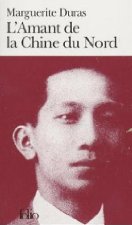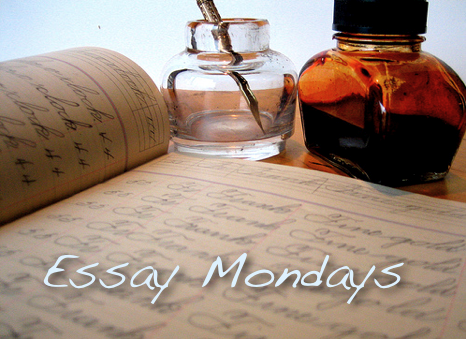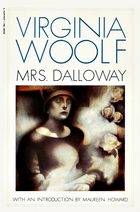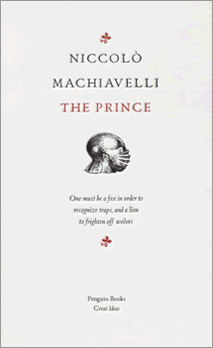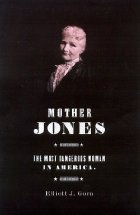
Welcome to the second round of Woolf in Winter, hosted by yours truly! I'll be proactive about checking around at all the blogs that posted on Mrs. Dalloway two weeks ago, but if I've missed you please leave a comment below and I'll add your post as soon as I can. I can't wait to discuss To the Lighthouse with everyone! (Note: I will be at work this morning, and I abstain from the internet on Saturdays have moved my no-computer day to Sunday in order to keep arguing so pleasantly with y'all, so if your post doesn't get linked right away it's just because I'm away from the computer.)
Edit: It's been real, guys. I really am taking Sunday off the computer, but this discussion has been grand. Thanks to everyone who read (or is reading) along, stopped by and/or commented!
It's often said that To the Lighthouse is Virginia Woolf's "most autobiographical" book. Personally, I think aspects of Woolf's biography slip into all her works in interesting ways (Orlando is based on her lover Vita Sackville-West's family background; Mrs. Dalloway contains her most explicit depiction of mental illness). It's certainly true, though, that Mr. and Mrs. Ramsay are modeled on Woolf's own mother and father, celebrated beauty Julia Duckworth and famous National Biography writer Leslie Stephen, and that the Ramsay family's summer home on the Isle of Skye mirrors Talland House, where the Stephen family spent summers in the 1880s and 1890s. (As you can see from the link, modern-day Talland House has been converted into a suite of "luxury holiday apartments" and painted a somewhat blistering chartreuse.) Vanessa Bell, Virginia Woolf's sister and fellow Bloomsbury Group member, wrote to her after first reading To the Lighthouse that
...in the first part of the book you have given a portrait of mother which is more like her to me than anything I could ever have conceived of as possible. It is almost painful to have her so raised from the dead. You have made one feel the extraordinary beauty of her character, which must be the most difficult thing in the world to do. It was like meeting her again with oneself grown up and on equal terms and it seems to me the most astonishing feat of creation to have been able to see her in such a way. You have given father too I think as clearly but perhaps, I may be wrong, that isn't quite so difficult. There is more to catch hold of. Still it seems to me to be the only thing about him which ever gave a true idea.
And Woolf herself wrote to Vita:
I don't know if I'm like Mrs. Ramsay; as my mother died when I was 13 probably it is a child's view of her: but I have some sentimental delight in thinking that you like her. She has haunted me: but then so did that old wretch my father. Do you think it sentimental? Do you think it irreverent about him? I should like to know. I was more like him than her, I think; and therefore more critical: but he was an adorable man, and somehow, tremendous.
I like this second short letter fragment because it gets at much of the ambivalence in To the Lighthouse toward both senior Ramsays and everything they represent. In many ways the novel is an affectionate, sympathetic look back ("an adorable man, and somehow, tremendous"), but in other, perhaps more important ways, it's a definitive break with Woolf's parents' generation. Like Lily Briscoe, Woolf acknowledges the tremendous appeal, the tremendous charisma of women like her mother: Victorian beauties, Angels in Houses, models of self-abnegation, providing steadfast moral and emotional support for all the men and children in their lives - and at the same time, like Lily placing her salt-shaker on the tablecloth to remind herself to move her painted tree more to the middle, she gently refuses to take on that role herself.
Not only that, but she explores the way in which Victorian men used such women as crutches, and the way in which such women themselves were instrumental in coercing other girls and women to conform. Lily notes that Mrs. Ramsay holds women to a higher standard than she does men, that she "pitied men always as if they lacked something - women never, as if they had something." As such, she is forbearing with men even when they act like complete babies, but stern with her daughters and other women if they diverge from her idea of proper feminine behavior. Mrs. Ramsay, albeit with great charm, belittles the importance of Lily's painting, arguing that any woman who fails to marry is missing the best of life; Mr. Ramsay barely notices Lily enough to deprecate her art. (Woolf herself said that if it hadn't been for her father's death when she was a young woman, she would never have been able to write.)
Oh, but, Lily would say, there was her father; her home; even, had she dared say it, her painting. But all this seemed so little, so virginal, against the other. Yet, as the night wore on, and white lights parted the curtains, and even now and then some bird chirped in the garden, gathering a desperate courage she would urge her own exemption from the universal law; plead for it; she liked to be alone; she liked to be herself; she was not made for that; and so have to meet a serious stare from eyes of unparalleled depth, and confront Mrs. Ramsay's simple certainty (and she was child-like now) that her dear Lily, her little Brisk, was a fool.
Likewise, although Woolf does, in a way, admire and even enjoy men like her father - note that in her letter to Vita she identifies more strongly with Leslie than Julia - she is also harshly critical of a system that allows boys, men and husbands to remain emotionally infantile, blindly twisting any situation to put themselves at its center, and being supported by a group of women trained to safeguard their delicate egos at all cost. As Lily observes while Mrs. Ramsay coerces her into conciliating Charles Tansley, saving the dinner party when Tansley is being an ass, this kind of social structure makes naked sincerity between men and women well nigh impossible - it's unfair to both women (who never get the chance to assert themselves) and men (who never get the chance to do anything else). "What happens if one is not nice to that young man there?" Lily asks herself, and one can almost hear the tantalizing possibilities simmering behind her question, the unaccustomed freedom in demanding that both parties treat each other equally. But no, she must abandon the experiment to suit the charm of Mrs. Ramsay, and the tyranny of men like Mr. Ramsay. I think one reason Woolf could look back affectionately on her parents' generation is that she herself had achieved what Lily only finds later with William Bankes: she had a frank, multi-gendered, intellectually stimulating group of friends who respected each others' humanity and intelligence enough to delight in honest conversation. That's one reason.
And another reason is to be found in the darkness surrounding Mrs. Ramsay, a near-nihilism reminiscent of the grimmest portions of Mrs. Dalloway. For as much as her children and acolytes strain against her influence, strive for a different life that seems impossible; as much as she seems to Lily always to get her way in the end, Time Passes: even overweening personalities can be snuffed out quietly, in a sudden parenthesis, as if they hardly mattered at all. And even before Mrs. Ramsay is whisked from the land of the living, she herself feels uneasily the emptiness, almost a panic, at her own core:
And yet she had said to all these children, You shall go through it all. To eight people she had said relentlessly that (and the bill for the greenhouse would be fifty pounds). For that reason, knowing what was before them - love and ambition and being wretched alone in dreary places - she had often the feeling, Why must they grow up and lose it all? And then she said to herself, brandishing her sword at life, Nonsense. They will be perfectly happy. And here she was, she reflected, feeling life rather sinister again, making Minta marry Paul Rayley; because whatever she might feel about her own transaction, she had had experiences which need not happen to every one (she did not name them to herself); she was driven on, too quickly she knew, almost as if it were an escape for her too, to say that people must marry, people must have children.
As Lily notes, it's "almost impossible to dislike any one if one looked at them," and in looking so carefully at the inner workings of Mr. and Mrs. Ramsay, Woolf is able to critique her parents' generation while also making her peace with them. Their lives were what they were, beautiful and flawed, and she chose to live hers differently.
And although that would probably be the best ending for this little essay, I can't resist inserting a few notes on odd, disconnected things I love about this novel. This time around (this is my third read through), I was struck by Woolf's skill at evoking entire exchanges with just a single line. When Charles Tansley, walking with Mr. Ramsay on the terrace, is heard to pronounce "Brilliant but I think fundamentally flawed," the reader feels the entire conversation - Tansley's and Ramsay's absorption in ideas, their self-satisfied pomposity - present in those few words. (Woolf's entire introduction of Tansley is, I think, hilarious.) Likewise, when William Bankes protests the English habit of cutting the skins off vegetables, "'In which,' said Mr. Bankes, 'all the virtue of the vegetable is contained,'" one can hear the palpably mounting indignation on the part of Mr. Bankes and Mrs. Ramsay as they egg each other on about British cooking, and eventually bring the rest of the dinner guests to break down in laughter. There is not much dialogue in this book, but entire conversations are conjured into the imagination with a few deft strokes.
My other favorite effect, of course (I mentioned it with regard to Mrs. Dalloway) is Woolf's conflation of the interior and exterior worlds of her characters, so that one bleeds into and reflects the other. The characters' experiences of the world around them are inextricably tied to their emotions and inner workings, so that James sees his magazine pictures "fringed with joy" at the thought of going to the lighthouse, Lily marks her artistic breakthrough by placing the salt-cellar on the tablecloth, and Mr. Ramsay perceives the urns and hedges of the house as having "so often decorated processes of thought," and externalizes his inner conflict with a bombastic and almost confrontational recitation of Tennyson. Like the rest of this novel, it's beautifully done.
- "The Fisherman and His Wife" by the Brothers Grimm: the story that Mrs. Ramsay is reading to James as she poses for Lily's painting
- "The Charge of the Light Brigade" by Alfred, Lord Tennyson: the poem Mr. Ramsay is reciting as he charges around the yard and almost runs into Lily and Mr. Bankes
- "The Invitation" by Percy Bysshe Shelley: The source of a line Mrs. Ramsay remembers Mr. Ramsay shouting at "poor Miss Giddings"
- "Luriana Lurilee" by Charles Elton: recited as the dinner party is breaking up
- "Sonnet 98" by William Shakespeare: the poem that forms the denoument of the passage describing Mrs. Ramsay's reading process
- "The Castaway" by William Cowper: which dominates the last section, "The Lighthouse."
Be sure to drop by others' posts! And please consider joining us for a discussion of Woolf's Orlando (at Nonsuch Book on February 12) and The Waves (at Kiss a Cloud on February 26).
- Amy at New Century Reading
- Anthony at Times Flow Stemmed
- Belleza at dolce belleza
- Care at Care's Online Book Club
- Christy at Lil Bit Brit Lit
- Claire at Kiss a Cloud
- Claire at Paperback Reader
- Frances at Nonsuch Book
- Jackie at Farm Lane Books
- Jason at Moored at Sea
- Jess at Upward, Onward, Ho!
- Jodie at Book Gazing
- Julia at A Number of Things
- Karen at BookBath
- Kaye at Kaye's Book Review Page
- Lena at Save Ophelia
- Lindsey at Sparks' Notes
- Mark David at Absorbed in Words
- Matt at A Guy's Moleskin Notebook
- Nicole at Bibliographing
- Rebecca at Rebecca Reads
- Richard at Caravana de recuerdos
- Sarah at What we have here is a failure to communicate
- Simon at Savidge Reads
- Victoria at Views from the Page and the Oven
- Violet at Still Life with Books
